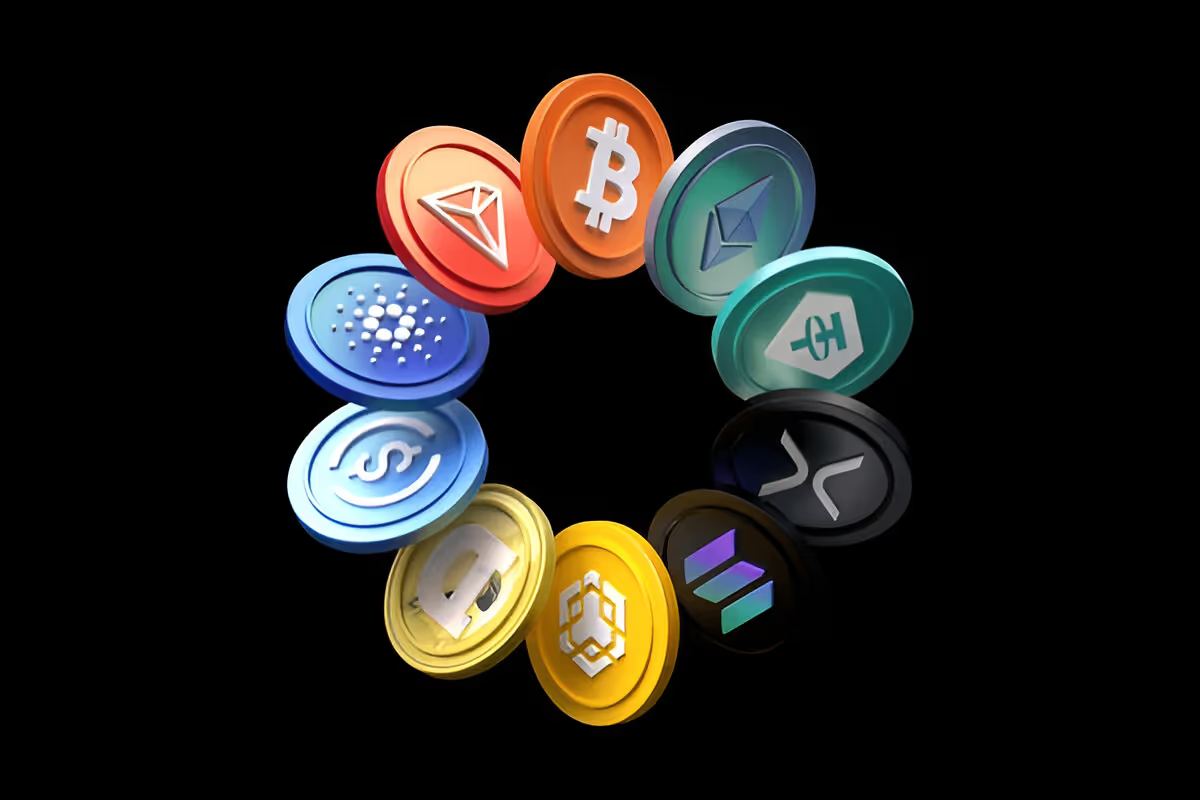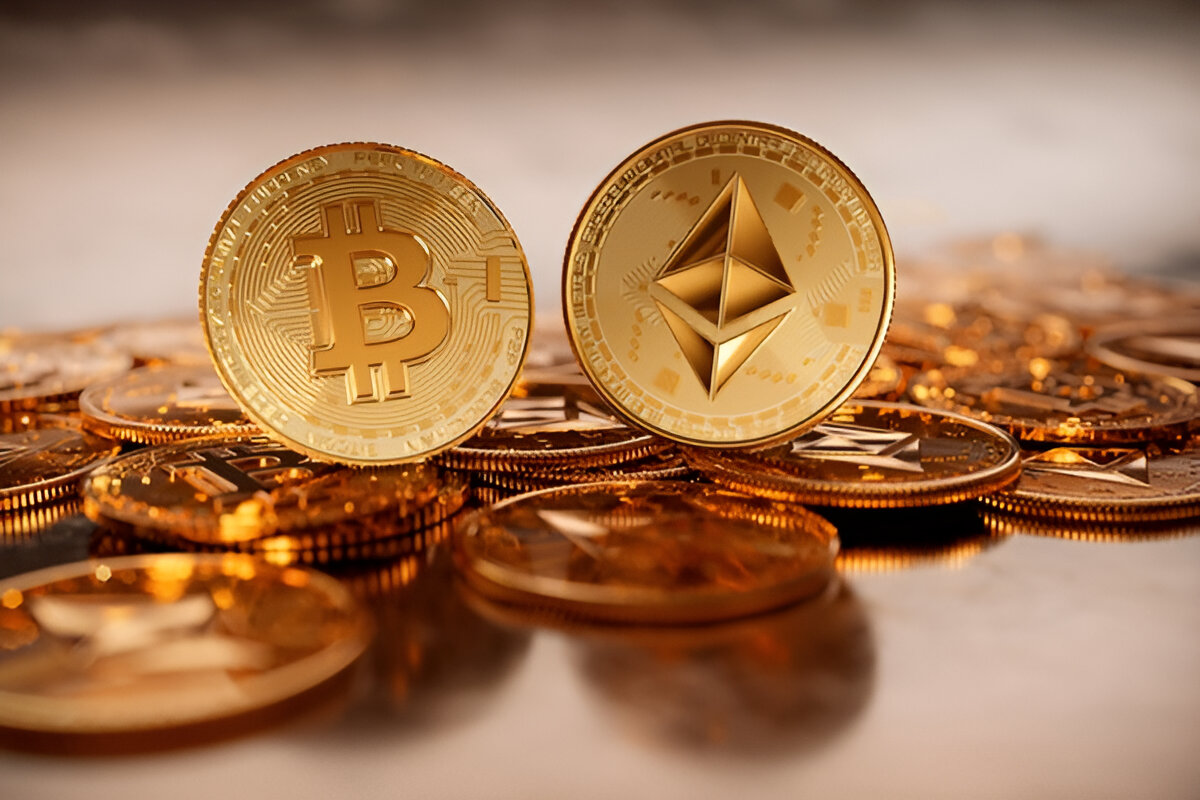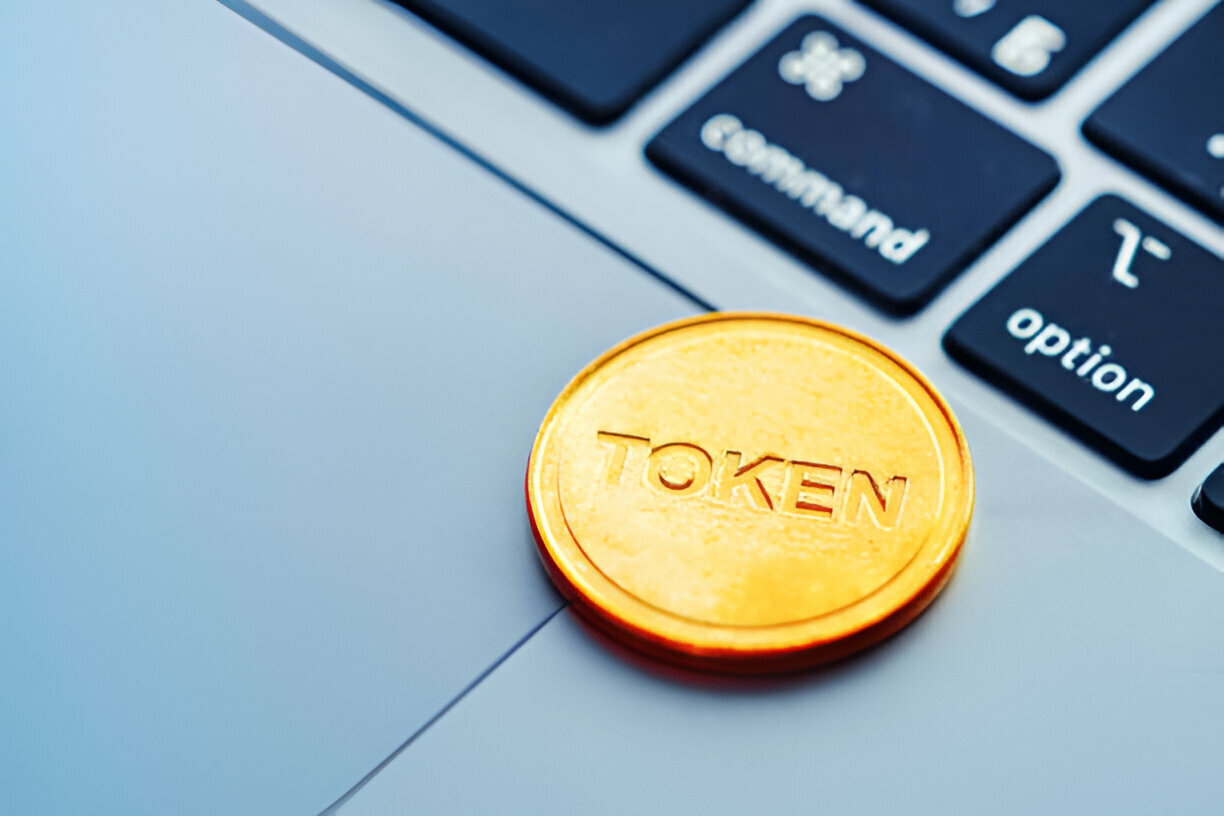Token vs. Coin: Differences and Similarities

Understanding what separates cryptocurrency coins from crypto tokens is necessary for anyone interested in investing in or learning about, cryptocurrencies. Though both play important parts in blockchain, they have different roles and features. By understanding these differences, you can make wiser decisions when it comes to digital currencies.
Defining Digital Assets
What Are Digital Assets?
Digital assets refer to things that hold value and exist only in the digital world. In this field, assets are called cryptocurrency coins, crypto tokens and other assets built on blockchain. They may be used to show possession, access rights or any other sort of value in a digital community.
Importance in the Blockchain Ecosystem
Blockchain networks rely on digital assets to make deals and give permissions to different features. Outside of blockchains, they help initiatives such as decentralized applications (dApps) and smart contracts. Their usefulness and adaptability are what help business in the digital industry.
What Is a Coin?

Definition and Characteristics
A cryptocurrency coin is a digital currency that functions solely on its own blockchain. These coins are key to how the blockchain runs and people use them to trade, save or measure value. Cryptocurrencies can be obtained through mining or by reaching consensus through methods such as Proof of Work (PoW) or Proof of Stake (PoS).
Examples of Cryptocurrency Coins
Some important cryptocurrency coins are Bitcoin (BTC) which works on its dedicated blockchain and Ethereum (ETH) which runs the Ethereum network. Many people trust these coins and buy and sell them for various crypto investments.
Role in Native Blockchains
Coins help their native blockchains by enabling transactions, motivating people to join the network and keeping the blockchain safe and secure. They play a vital role in their networks by guaranteeing easy and secured operations.
What Is a Token?

Definition and Characteristics
A crypto token is a type of digital asset that is created on an existing blockchain network, rather than operating on its own native blockchain. A token can stand for different things such as access rights, rights to vote or actual physical items. Using tokens is necessary for various decentralized applications (dApps).
Creation via Smart Contracts
Usually, tokens are generated based on smart contract code written for blockchains like Ethereum. The contracts show what the token will have such as its total amount, who will hold it and how it functions. With this approach, users can deploy tokens fast without building a new blockchain.
Examples of Crypto Tokens
Chainlink (LINK) is an example of a crypto token that offers decentralized oracles, whereas Uniswap (UNI) is used to govern what happens on the Uniswap system. All these tokens are built on the Ethereum blockchain and play unique roles within each project.
Token vs. Coins: Key Differences
Blockchain Independence
The main difference comes from how they interact with the blockchain. Coins are supported by their own native blockchain which allows them to operate independently without depending on other networks. On the other hand, tokens run within existing blockchains and take advantage of their built-in infrastructure and security.
Use Cases and Functionality
Coins are mainly used for trading and passing on value between members of their networks. Tokens can be used for certain purposes such as allowing access, handling governance or showing the ownership of assets. Their adaptability makes it possible for them to be used in many ways throughout the blockchain ecosystem.
Transaction Methods
Decisions on transactions made on coins are recorded by their corresponding blockchain and checked by the blockchain’s consensus method. Token transactions, however, work through smart contracts on the leading blockchain, employing its agreement system and platform. The way blocks are created leads to differences in how fast transactions take, fees involved and scalability.
Similarities Between Coins and Tokens
Digital Nature
Both coins and tokens exist as digital assets that have no physical copies. They depend on cryptography to protect their transactions and determine new creation of coins. The fact that they exist digitally helps them fit effortlessly into different online tools and solutions.
Operate on Blockchain Technology
Despite there being differences between the two, coins and tokens operate using blockchain technology. They record transactions on blockchains which ensures the ledger is both transparent, secure and unchangeable. Because of this foundation, both are known to work well and be trustworthy.
Mediums of Exchange
Both currencies are built for mutually exchanging value between buyers and sellers. Although coins are mostly used for routine shopping, tokens may be used to secure services, privileges or assets within different networks. Because they are interchangeable, they are more useful and adopted by users.
Types of Tokens
Utility Tokens
Utility tokens give their holders the chance to use certain products or services in a blockchain environment. They exist primarily to be used for specific operations, like logging into a platform or purchasing goods. For example, Basic Attention Token (BAT) is employed in the Brave browser space.
Security Tokens
A security token is a token that lets you own and claim shares in a business or real estate. The regulations from federal securities authorities apply to them and they allow investors to receive dividends or profit shares. The gap between traditional assets and blockchain technology is bridged with these tokens.
Governance Tokens
Governance tokens allow those who hold them to be involved in making important decisions for a blockchain project. Token holders have the power to suggest and decide on changes to the project. You can find examples in Maker (MKR), designed for its holders to influence the MakerDAO system.
Asset-Backed Tokens
Asset-backed tokens represent physical items in the digital world such as gold, real estate and fiat currencies. These allow users to trade and hold property on the blockchain which increases their flexibility and eases access. For example, Tether (USDT) is valued at the same level as a US dollar.
Use Cases in Decentralized Applications (dApps)
Tokens in dApps
Tokens help make decentralized applications (dApps) by giving access, working as incentives or acting as tools for making decisions. They make it possible for people to experience, join in on or gain from using the dApp’s features. By doing this, the platform becomes more user-friendly and useful.
Coins in dApps
Coins are not used as often in dApps, but they do have roles as both currency and a payment style. A number of dApps are built around the use of cryptocurrencies, so people can easily interact with them as these currencies are widely known and liquid. Yet, tokens are often created to fit the special features of a particular dApp.
Investment Considerations
Market Volatility
The prices of both coins and tokens are affected by market demand, improvements in technology and variations in regulation. It is important for investors to understand the risks connected to price changes and society’s feelings toward the market. By diversifying your assets and doing careful research, you may lessen these risks.
Regulatory Aspects
Regulations on digital assets are not the same everywhere and can change how coins and tokens are allowed to function. Most importantly, security tokens need to comply with strict rules. To be certain your investments comply and are secure, you need to be informed about current legal changes.
Project Evaluation
While reviewing a coin or token’s underlying project, it is important to check the development team, reason for its existence, the level of support within the community and recent development in the underlying technology. Knowing what the project wants to achieve and its future plans can help you see where it may grow and if it can last. Investors must do their research to make sensible investments.
Conclusion
Recap of Differences and Similarities
Overall, each cryptocurrency operates independently on its own specialized blockchain, providing the basic currency and exchange center for its users. With the help of smart contracts using blockchain technology, tokens provide many useful features and are key parts of various applications. Although they both use digital technologies and blockchain, their designs and uses are not the same.
Final Thoughts on Choosing Between Coins and Tokens
Selecting whether to invest in coins or tokens relies on your objectives, how much risk you can handle and which blockchain projects appeal to you. Recognizing each element’s roles in the blockchain world allows investors to make wiser choices about digital assets.
Frequently Asked Questions (FAQs)
What is the main difference between a coin and a token?
Coins are digital currencies that operate on their own independent blockchains, like Bitcoin or Ethereum. Tokens, on the other hand, are built on existing blockchains and do not have their own separate networks.
How are coins and tokens created?
Coins are typically created through processes like mining or staking on their own blockchains. Tokens are generated using smart contracts on existing blockchains, such as Ethereum’s ERC-20 standard.
Can tokens be used like coins for transactions?
Yes, tokens can be used for transactions, but they often serve additional purposes like granting access to services or representing assets. Coins primarily function as a medium of exchange.
What are some examples of coins and tokens?
Examples of coins include Bitcoin (BTC) and Ethereum (ETH), which have their own blockchains. Examples of tokens include Chainlink (LINK) and Uniswap (UNI), which are built on the Ethereum blockchain.
Why is it important to understand the difference between coins and tokens?
Understanding the distinction helps investors and users make informed decisions, as coins and tokens have different functionalities, use cases, and underlying technologies.
Disclaimer
“This content is for informational purposes only and does not constitute financial advice. Please do your own research before investing.”






